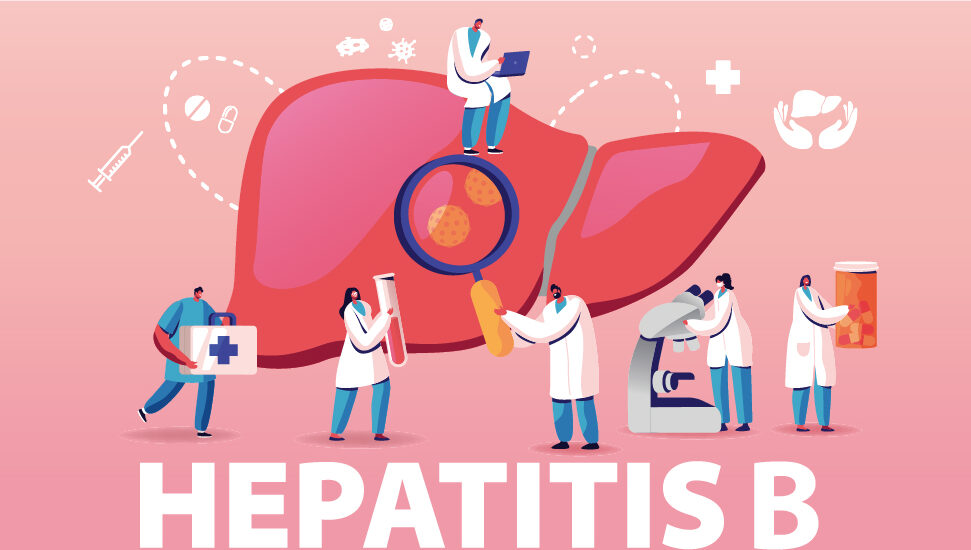Hepatitis B:
The Silent Liver Invader You Shouldn’t Ignore
When it comes to viral infections, Hepatitis B (HBV) is like that uninvited guest who shows up, stays longer than expected, and wreaks havoc without you noticing. It’s one of the most common liver infections worldwide, affecting millions of people. But don’t worry—I’m Dr. Bobby Mitrolia, a gastroenterologist with extensive experience in treating liver conditions. Let’s dive into everything you need to know about this sneaky virus.
🎯 What is Hepatitis B?
Hepatitis B is a viral infection that targets the liver, causing inflammation. It can manifest as:
Acute Hepatitis B: A short-term infection that your immune system may fight off on its own.
Chronic Hepatitis B: A long-term infection that can lead to liver damage, cirrhosis, or even liver cancer.
🦸♂️ How Does Hepatitis B Spread?
HBV spreads faster than office gossip! It transmits through:
Mother-to-child transmission: During childbirth, if the mother is infected.
Unprotected sex: With an infected partner.
Contact with infected blood: Through needle sharing or unsafe medical practices.
Sharing personal items: Like razors or toothbrushes.
Once inside, the virus can survive for 7 days and still infect someone. The incubation period ranges from 30 to 180 days, making early detection a challenge.
🤔 Who’s at Risk?
While anyone can get infected, some people are at higher risk, including:
Healthcare workers.
People with multiple sexual partners.
Individuals receiving blood transfusions or dialysis.
Infants born to infected mothers.
🚨 Symptoms: Are You Infected?
Here’s the tricky part—Hepatitis B often shows no symptoms! But when it does, the signs may include:
Jaundice: Yellowing of the skin and eyes.
Dark urine: No, it’s not that energy drink you tried!
Fatigue: Feeling drained without running a marathon.
Nausea and vomiting: When your stomach is in rebellion.
Abdominal pain: Especially in the upper right side.
🔬 Diagnosis: Solving the Puzzle
Detecting Hepatitis B requires:
Blood tests: To check for HBV antigens and antibodies.
Liver function tests: To assess liver damage.
Ultrasound or Fibroscan: To evaluate fibrosis or cirrhosis.
Liver biopsy: In severe cases.
💉 Prevention: A Shot of Protection
Good news—Hepatitis B is preventable! A safe and effective vaccine can protect you for life. Newborns should get their first dose within 24 hours of birth, followed by 2-3 additional doses.
For adults at risk, vaccination is a no-brainer. It’s like installing antivirus software for your liver—better safe than sorry!
💊 Treatment: Managing Chronic Hepatitis B
While acute infections often resolve on their own, chronic Hepatitis B may require lifelong management. Treatment options include:
Antiviral medications: Such as Tenofovir and Entecavir, which slow the progression of liver damage.
Liver monitoring: Regular follow-ups to check for cirrhosis or liver cancer.
Liver transplantation: In severe cases where the liver is beyond repair.
🕵️♂️ HBV-HIV Coinfection: Double Trouble
About 1% of people with Hepatitis B are also co-infected with HIV. The good news? Tenofovir, used to treat HIV, is also effective against Hepatitis B—offering a dual defense.
🩺 When to Seek Medical Help
Call your doctor if you experience:
Persistent jaundice.
Severe abdominal pain.
Vomiting blood or dark stools.
Difficulty breathing.
Remember, early detection and treatment can prevent long-term complications. As I always say, “When in doubt, let your doctor figure it out!”
🎉 Final Thoughts: Protect Your Liver!
Hepatitis B may be a silent invader, but with vaccination and regular check-ups, you can keep your liver in top shape. Don’t wait for symptoms to show up—protect yourself and your loved ones today!
✅ For consultations or more information, visit Gastro Heal Clinic.




